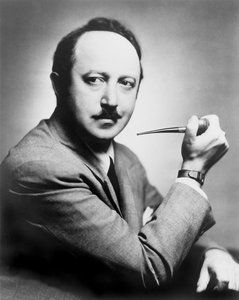A Quote by Lawrence M. Krauss
There are areas of philosophy that are important, but I think of them as being subsumed by other fields. In the case of descriptive philosophy, you have literature or logic, which, in my view, is really mathematics.
Quote Topics
Related Quotes
One of the things I want to do in the book is to explore how philosophy can be done in literature. I start doing that in the first chapter, by introducing the idea of "philosophy by showing". What literature/philosophy shows is how to look at some important facets of life in a new way, thus changing the frame in which subsequent philosophical argument proceeds.
One thing I really like about philosophy is that it's possible actually to do work in a wide range of different areas. I am particularly happy that I've even been able to do work in logic that has allowed me to use and develop my mathematical abilities, as well as to work on quite distant topics in philosophy of language and mind.
A writer must always try to have a philosophy and he should also have a psychology and a philology and many other things. Without a philosophy and a psychology and all these various other things he is not really worthy of being called a writer. I agree with Kant and Schopenhauer and Plato and Spinoza and that is quite enough to be called a philosophy. But then of course a philosophy is not the same thing as a style.
This is an extremely ambitious book. In addition to science and mathematics, Byers brings to bear insights from literature, philosophy, religion, history, anthropology, medicine, and psychology. The Blind Spot breaks new ground, and represents a major step forward in the philosophy of science. The book is also a page-turner, which is rare for this topic.
I would say to anybody who thinks that all the problems in philosophy can be translated into empirically verifiable answers - whether it be a Lawrence Krauss thinking that physics is rendering philosophy obsolete or a Sam Harris thinking that neuroscience is rendering moral philosophy obsolete - that it takes an awful lot of philosophy - philosophy of science in the first case, moral philosophy in the second - even to demonstrate the relevance of these empirical sciences.
In elaborating how "philosophy by showing" works, and in defending the idea that literature and music can contribute to philosophical "showing", I am also doing something more standardly philosophical. But I view most of the book as an interweaving of philosophy and literary criticism. If that entails a broadening of a standard idea of philosophy, it's a broadening I'd like to see happen.
Philosophy by showing - including philosophy in literature - does truly valuable work in leading us to new perspectives from which our arguments can then begin. It does so by introducing new synthetic complexes, which we then reflect on from various points of view. When the complexes survive and grow, that initial showing has been philosophically decisive.
Philosophy appears to some people as a homogenous milieu: there thoughts are born and die, there systems are built, and there, in turn, they collapse. Others take Philosophy for a specific attitude which we can freely adopt at will. Still others see it as a determined segment of culture. In our view Philosophy does not exist.
Since philosophy is the art which teaches us how to live, and since children need to learn it as much as we do at other ages, why do we not instruct them in it? .. But in truth I know nothing about the philosophy of education except this: that the greatest and the most important difficulty known to human learning seems to lie in that area which treats how to bring up children and how to educate them.
Some of my understanding of what philosophy and ethics is has changed very slowly. One thing that has changed is this for quite a long time I bought-into the idea that philosophy is basically about arguments. I'm increasingly of the view that it isn't. The most interesting things in philosophy aren't arguments. The thing that I think is underestimated is what I call a form of attending. I think that philosophy is at least as much about carefully attending to things as it is about the structure of arguments.



































